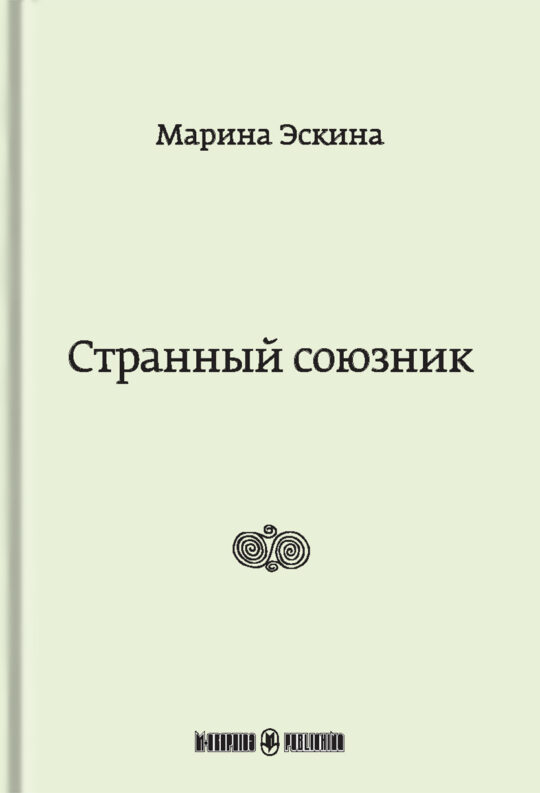Description
Writing in the vibrant voice of “A Russian Immigrant” and employing a rich variety of poetic forms, award-winning author and Boston College professor Maxim D. Shrayer offers thirty-six interconnected poems about the impact of election-year politics and COVID-19 on American society. Through a combination of biting satire and piercing lyricism, Of Politics and Pandemics delivers a translingual poetic manifesto of despair, hope, love, and loss.



 Maxim D. Shrayer (Russian spelling: Максим Д. Шраер), a translingual author, scholar and translator, is Professor of Russian, English, and Jewish Studies at Boston College. Born in Moscow in 1967 to a writer’s family, Shrayer emigrated to the United States in 1987. He has authored over fifteen books in English and Russian, among them the internationally acclaimed memoir “Leaving Russia: A Jewish Story,” the collection “Yom Kippur in Amsterdam,” and the anthology “Voices of Jewish-Russian Literature.” His works have been translated into nine languages. Shrayer won a 2007 National Jewish Book Award, and in 2012 he received a Guggenheim Fellowship. Shrayer’s recent books include “A Russian Immigrant: Three Novellas” (in English) and “Antisemitism and the Decline of Russian Village Prose” (in Russian).
Maxim D. Shrayer (Russian spelling: Максим Д. Шраер), a translingual author, scholar and translator, is Professor of Russian, English, and Jewish Studies at Boston College. Born in Moscow in 1967 to a writer’s family, Shrayer emigrated to the United States in 1987. He has authored over fifteen books in English and Russian, among them the internationally acclaimed memoir “Leaving Russia: A Jewish Story,” the collection “Yom Kippur in Amsterdam,” and the anthology “Voices of Jewish-Russian Literature.” His works have been translated into nine languages. Shrayer won a 2007 National Jewish Book Award, and in 2012 he received a Guggenheim Fellowship. Shrayer’s recent books include “A Russian Immigrant: Three Novellas” (in English) and “Antisemitism and the Decline of Russian Village Prose” (in Russian).





Yuliya Shulman
“As a scholar and author of fiction (in English and Russian), Maxim D. Shrayer has distinguished himself with a rare ability for engaging storytelling. The direct and often disarming story told in his debut collection of English-language poems is that of doubts and tribulations of an opinionated lyrical persona. What differentiates this collection from much of the purely topical writings of the day is its author’s ability to relate personal, often very private experiences to more general issues such as election politics and the pandemic. Shrayer also breathes new life into such “old-fashioned” stanzaic structures as terza rima (based on its interpretation by Shelley is his “Ode to the West Wind”) and sonnet. In doing so, Shrayer achieves an equilibrium between passion and reason, conviction and contemplation.”
— Igor Vishnevetsky, author of “Leningrad” and “Sergei Prokofiev”.
“Maxim Shrayer’s collection of poems, Of Politics and Pandemics: Songs of a Russian Immigrant, begins with three epigraphs — by Fernando Pessoa, Ilya Selvinsky, and Carl Sandburg, respectively. Each of them is deeply suggestive. Pessoa, the great Portuguese modernist, developed the idea of heteronyms, fully-fledged literary personae responsible for shares of his work. Actual masks appear in a number of Shrayer’s poems about the pandemic, and the heteronymous “Russian Immigrant” he creates is ideally suited for our bizarre times. The persona parallels his actual self — Shrayer immigrated to the United States with his parents 34 years ago — but also introduces an element of playfulness and ironic distance he requires to comment on the absurdities of our politics and culture. Indeed, Shrayer’s method mirrors Pessoa’s: “I took off the mask and put it back on./ This way is better./ This way I’m the mask.”
The epigraph from Ilya Selvinsky, a classic of the Soviet avantgarde and the subject of Shrayer’s excellent book, I Saw It: Ilya Selvinsky and the Legacy of Bearing Witness to the Shoah, comes from the poet’s cycle Anecdotes about the Karaite Philosopher Babakay-Sudduk and reads, in Shrayer’s inventive translation, “Better to under-, then to over-.” This Chekhovian ideal of saying more through less, as poetry should, is the defining mark of Shrayer’s verse, which packs a whole lot of cultural information and personal reflection into a few succinct lines.
The final epigraph from Sandburg is taken from his “The Long Shadow of Lincoln: A Litany.” Like Sandburg’s, Shrayer’s poems are immersed in the immediate politics of his day, which, however, cast a long historical shadow, revealing unexpected parallels between the Soviet and American experiences. Yet it isn’t just historical experience to which Shrayer hearkens back, it’s also the prosody of an earlier era. His adherence to traditional versification offers a challenge to contemporary American poetic trends and fashions. In this he echoes his beloved Nabokov, but also Joseph Brodsky and Brodsky’s beloved Robert Frost. By and large, Shrayer’s iambs do not detract from, but rather add to his poetic insights.” — Los Angeles Book review, July 5, 2021
— Marat Grinberg, professor of Russian and comparative literature at Reed College.
“Whether lobbing satiric barbs at presidential hopefuls or pondering the bonds of marriage and family in a time of pandemic, Maxim D. Shrayer’s collection, at once lyrical and playful, captures the predicament of a Russian immigrant in Trump-era America with delicious wit and timely acuity.”
— Andrew Sofer, poet and Professor of English, Boston College, author of “Wave and Dark Matter”
“Maxim D. Shrayer’s new collection of poems is a splendid achievement, and just what the doctor ordered for readers reeling from the double assault of political upheavals and raging pandemic. Shrayer’s poems are not only personal, but also culturally rich and politically astute — a rare combination in lyric poetry. The poet-narrator, a melancholy, sometimes self-ironizing sophisticate, is a Russian émigré steeped in the tradition of European literature, and profoundly familiar, from first-hand experience, with what an autocratic regime looks like. His otherness is the source of funny, sane, penetrating observations about events in America in 2020. Maxim D. Shrayer’s “Of Politics and Pandemics” is a tonic for our times.”
— Anna Brodsky-Krotkina, Professor of Russian Studies, Washington & Lee University and columnist, “Nezavisimaya gazeta”
“The author, or rather his Russian immigrant lyrical hero, regards poetry as a fainting mirror of doubles, in which boundaries of time and space are erased. Reality and memory, everyday life and the absolute of destiny, feelings, fears and hopes, the pandemic present and the historical past, are all split apart and reconnected in the course of Shrayer’s poetical dialogue with himself and others. Both apocalyptic banality and existential suspense need a special poetic perspective: ‘…Can you create/ a living record?’ ‘I’m not sure what you mean.’/’ Can you describe this?’ ‘This? You mean the taste/ of spring on our lips? The April wind?’/ ‘No, the pandemic,’ my double spoke with passion.’ This dialogue recalls Anna Akhmatova’s tragic words in “Requiem”: ‘Can you describe this?’ And I said: I can.’”
— Stefano Garzonio, poet and Professor of Slavic Studies, Pisa University, editor of “Poesia Russa” (2004) and “Lirici Russi dell’Ottocento” (2011)
“I like humor. As the philosopher once said, “I find it funny.” And there is plenty to turn a smile in this collection. At points I even found myself laughing out loud. Only soon after to be confronted with moments of deep despair. You can’t live in America at the moment and not find yourself taken aback by the laughable craziness of some things and the incredible desperation of others. Maxim D. Shrayer captures that feeling so well. Without much fanfare, he also makes an urgent case for the thinking person and for a return to decency and civility in our leaders — to which I say: here’s to that!”
— Graeme Harper, Editor, “New Writing: the International Journal for the Practice and Theory of Creative Writing” and author of “Discovering Creative Writing”